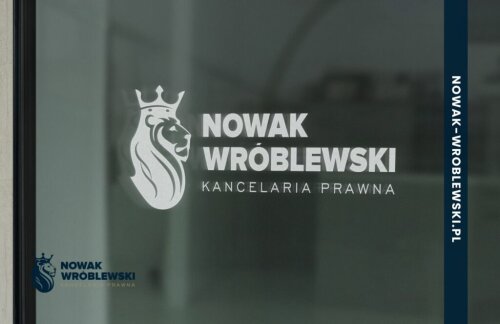Best Restructuring & Insolvency Lawyers in Tarnobrzeg
Share your needs with us, get contacted by law firms.
Free. Takes 2 min.
List of the best lawyers in Tarnobrzeg, Poland
1. About Restructuring & Insolvency Law in Tarnobrzeg, Poland
Restructuring and insolvency law in Tarnobrzeg operates within Poland's national framework, and matters are typically handled by the local court system through the Tarnobrzeg district court (Sąd Rejonowy w Tarnobrzegu). These proceedings cover both corporate entities and individuals facing financial distress. In Tarnobrzeg, as in the broader Subcarpathian Voivodeship, the Wydział Gospodarczy (Commercial Division) of the district court is usually the forum for restructuring and insolvency matters. The aim is to provide either a viable recovery plan for a struggling business or to orderly liquidation when recovery is not feasible.
Two main paths exist under Polish law: restructuring (restrukturyzacja) and insolvency (upadłość). Restructuring focuses on rehabilitating a debtor through plans agreed with creditors, while insolvency leads to liquidation or a court-supervised arrangement if recovery is not possible. Practically, many Tarnobrzeg clients begin with a restructuring petition to buy time and preserve value for creditors, employees, and suppliers, before potential liquidation decisions are made.
Professional guidance is essential due to the complexity of procedurals, the need to coordinate with creditors, and the strict timelines courts impose. A local insolvency attorney or legal counsel can shepherd the process, prepare required financial documents, communicate with the court, and negotiate plans with creditors. The goal is to achieve a transparent, legally compliant path that protects your interests while complying with Polish law.
Official guidance notes that restructuring and insolvency procedures in Poland are court-supervised processes designed to preserve value and orderly creditor rights, with multiple paths (restructure, rehabilitation, bankruptcy) depending on the debtor's situation.
Sources and further reading on the official framework can be found on government resources such as the Polish Ministry of Justice and related agencies. See Ministry of Justice - Insolvency and Restructuring.
2. Why You May Need a Lawyer
Restructuring and insolvency cases in Tarnobrzeg involve technical steps and strategic planning. A lawyer helps you navigate procedural requirements, protect assets, and negotiate with creditors. Below are concrete scenarios where legal help is essential.
- You run a Tarnobrzeg manufacturing SME facing a liquidity crisis and need a restructuring plan to avoid immediate supplier disputes and potential court proceedings. A lawyer can draft a sanation or restructuring proposal and coordinate with creditors for a feasible plan.
- Your company has signed long-term supply contracts and is in danger of breach and you need protection from enforcement and penalties while restructuring is underway. An attorney can seek court protection and negotiate temporary remedies with creditors.
- You are an individual debtor in Tarnobrzeg and face wage garnishment or creditor harassment. A lawyer can initiate restructuring or file for personal bankruptcy (if eligible) to provide relief and a fresh start.
- A creditor in Tarnobrzeg suspects assets are being hidden or mismanaged and seeks to secure payments or freeze assets. Legal counsel can file preservation orders and participate in creditor committees.
- Your business has international suppliers or customers and you need cross-border coordination in restructuring or insolvency. A local lawyer can manage cross-border aspects and interface with foreign creditors under Polish rules.
- You are considering a pre-packaged restructuring plan and want to ensure it complies with Polish law and creditor approvals. A lawyer can structure the plan to maximize chances of court approval.
3. Local Laws Overview
Two primary statutory regimes govern restructuring and insolvency in Poland, including Tarnobrzeg. These laws set out court processes, creditor rights, and the mechanics of plans and asset distribution. A local insolvency solicitor in Tarnobrzeg will interpret these acts in line with Tarnobrzeg court practice.
Prawo restrukturyzacyjne (Restructuring Law) governs court-supervised restructurings, processes for approving restructuring plans, and protections offered to debtors while plans are negotiated. It is designed to preserve business value and jobs where possible, through sanctioned plans approved by creditors and the court.
Prawo upadłościowe i naprawcze (Bankruptcy and Rehabilitation Law) governs insolvency proceedings, including liquidation when recovery is not feasible, rehabilitation measures, and the distribution of assets to creditors under court supervision. This act provides the framework for orderly wind-downs and creditor satisfaction.
Notes on recent changes - Polish restructuring and insolvency laws have undergone multiple amendments to broaden consumer and SME protection, streamline court procedures, and strengthen creditor pre-approval processes. Practitioners in Tarnobrzeg stay current with these amendments to advise clients accurately and ensure timely filings.
In Tarnobrzeg, cases are filed with the Sąd Rejonowy w Tarnobrzegu, Wydział Gospodarczy (Commercial Division of the Tarnobrzeg District Court). Local rules may affect filing forms, timing, and participation of creditors, so local counsel is valuable for practical navigation.
According to official guidance, restructuring and insolvency proceedings are designed to balance debtor needs with creditor rights within a court supervised framework.
Source references for statutory context and official guidance include government resources such as the Polish Ministry of Justice. See Ministry of Justice - Insolvency and Restructuring.
4. Frequently Asked Questions
What is the difference between restructuring and bankruptcy?
Restructuring aims to rehabilitate a debtor with a plan approved by creditors and the court, preserving business value. Bankruptcy results in liquidation or court-supervised settlement when recovery is unlikely.
How do I start restructuring in Tarnobrzeg?
Contact a local insolvency solicitor, gather financial documents, and file a restructuring petition with the Tarnobrzeg district court. Your lawyer will prepare a restructuring plan and creditor notices.
When can I file for personal bankruptcy in Tarnobrzeg?
Personal bankruptcy is available when you cannot meet debt obligations and there is no viable plan for rehabilitation. A lawyer can assess eligibility and initiate the process.
Where will the restructuring procedure be heard?
Most proceedings are heard by the Wydział Gospodarczy of the Sąd Rejonowy w Tarnobrzegu. Your counsel will file documents with the court and monitor deadlines.
Why should I hire a Tarnobrzeg lawyer specifically?
Local counsel understands regional court practices, local creditor networks, and court timelines. They can coordinate with local experts and ensure timely filings.
Can restructuring save a failing business?
Yes, if a feasible plan is negotiated and approved by creditors and the court. Success depends on cash flow, asset value, and creditor support.
Should I negotiate directly with creditors or through my lawyer?
Lawyers typically negotiate on your behalf to ensure compliance with legal requirements and to secure favorable terms for the restructuring plan.
Do I need to pay court costs for restructuring?
Yes, court costs and legal fees are associated with restructuring proceedings. Your lawyer can estimate costs and provide a budget plan.
Is mediation available in Tarnobrzeg?
Polish law supports mediation as a prelude or component of restructuring. Your lawyer can arrange mediation if appropriate to the case.
How long does a restructuring procedure usually take?
Timelines vary widely by complexity and creditor responses. Simple restructurings may finish in a few months; complex cases may extend over a year.
What documents are needed to start a case?
Common documents include financial statements, tax records, contracts, creditors lists, and a detailed cash flow forecast. Your attorney will provide a complete checklist.
How much does a Tarnobrzeg insolvency lawyer cost?
Costs depend on case complexity, hourly rates, and whether a plan is approved. Request a written fee estimate during the initial consultation.
5. Additional Resources
Use these official resources for authoritative information and procedural guidelines related to restructuring and insolvency in Poland.
- Ministry of Justice (Poland) - Insolvency and Restructuring - Official guidance on legal frameworks, court procedures, and debtor rights. https://www.gov.pl/web/sprawiedliwosc
- Polish National Financial Authority (KNF) - Supervisory guidance relevant to corporate finance, safeguarding creditor interests, and orderly restructuring practices. https://www.knf.gov.pl
- National Tax Administration (KAS) - Tax considerations in restructuring and insolvency, including VAT and tax obligations during proceedings. https://www.gov.pl/web/kas
6. Next Steps
- Define your goals: determine whether restructuring or insolvency best fits your situation in Tarnobrzeg. This helps target the right approach.
- Collect core documents: assemble financial statements, contracts, creditor lists, and cash flow projections for initial review.
- Identify a Tarnobrzeg insolvency attorney: choose a local lawyer with experience in Sąd Rejonowy w Tarnobrzegu cases and proven success with restructuring plans.
- Schedule a 60-minute consultation: prepare questions about timelines, costs, and potential outcomes. Bring all relevant documents.
- Evaluate a preliminary plan: your lawyer should outline a feasible restructuring or rehabilitation strategy and key milestones.
- Discuss costs and fee structure: obtain a detailed fee estimate and billing schedule in writing before proceeding.
- Proceed with filing and court engagement: your lawyer will file petitions, notify creditors, and manage court communications on your behalf.
Lawzana helps you find the best lawyers and law firms in Tarnobrzeg through a curated and pre-screened list of qualified legal professionals. Our platform offers rankings and detailed profiles of attorneys and law firms, allowing you to compare based on practice areas, including Restructuring & Insolvency, experience, and client feedback.
Each profile includes a description of the firm's areas of practice, client reviews, team members and partners, year of establishment, spoken languages, office locations, contact information, social media presence, and any published articles or resources. Most firms on our platform speak English and are experienced in both local and international legal matters.
Get a quote from top-rated law firms in Tarnobrzeg, Poland — quickly, securely, and without unnecessary hassle.
Disclaimer:
The information provided on this page is for general informational purposes only and does not constitute legal advice. While we strive to ensure the accuracy and relevance of the content, legal information may change over time, and interpretations of the law can vary. You should always consult with a qualified legal professional for advice specific to your situation.
We disclaim all liability for actions taken or not taken based on the content of this page. If you believe any information is incorrect or outdated, please contact us, and we will review and update it where appropriate.










